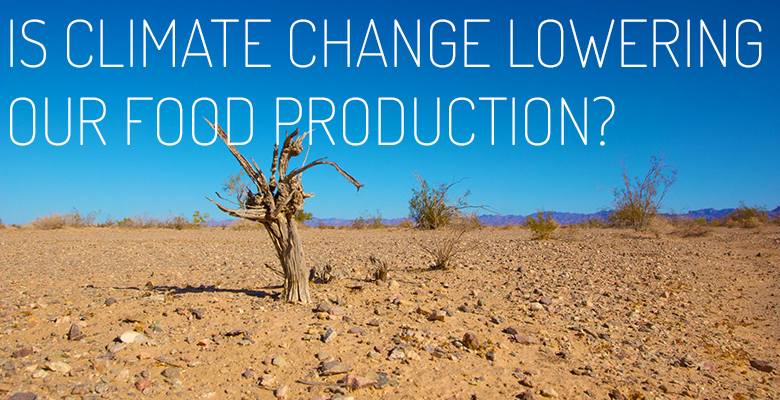
The world is almost upon a world food shortage according to research, with climate change projected to increase the number of floods, droughts, heat waves and other intense short-term events that could seriously hinder food production.
Climate change and food production is likely to be a major topic of discussion at the upcoming 6th Agricultural Model Intercomparison and Improvement Project (AgMIP) Global Workshop in France later this month.
With a rising occurrence in extreme weather events year-on-year, the frequency is beginning to concern global food modelling experts.
These intense events, even though local to a specific area, can have a global effect due to the market need for specific crops or produce. For example, during 2012 the United States mid-West experienced the worst drought in over half a century. This drought may have effected local maize crops, but caused worldwide maize and soybean markets to spike at a exponential rate.
With a price jump significant, due to consistent demand but lower supply, poorer communities may lose access to adequate food. This may spiral into civil unrest in countries where demand exceeds affordable supply, and where fragile governance is maintained.
“If extreme events happen irregularly enough, that’s okay, because you might have 10 or 20 good years before you get a truly extreme bad year, and so that frequency isn’t enough to really try to breed for or prepare technologically for those extreme events”, explained Jordan Elliott, AgMIP’s Global Gridded Crop Modeling Intercomparison leader.
Find out about the Keynote Speakers for #AgMIP6! @ifpri @ICRAF @UWMadison @earthinstitute https://t.co/5e4HAfCigs pic.twitter.com/FDM8Vh4pSG
— AgMIP (@AgMIPnews) June 10, 2016
“But as extreme events start to become more frequent and more severe that’s likely to no longer be the case and we may have to actually completely reframe how we breed crops, how we develop new management strategies so that we can actually breed for variance, and breed for resilience, not just breed for yield.”
During the AgMIP workshop, held from June 28-30th in Le Corum, Montpellier, France, the AgMIP will hold two sessions to give talks on potential “food shocks.”
The sessions will cover a wide range of topics, and will discuss how extremes, diseases, pests and other components can combine alongside other natural occurrences to ‘shock’ the global agricultural system.
Hopefully these sessions prove a valuable lesson to the nations expected to attend, with the Intergovernmental Panel on Climate Change (IPCC) finding that with increased warmer temperatures, the probability of heat waves, floods and droughts also increases.
As research and studies uncover more and more evidence for the negative climate change effects that could put our food supplies in jeopardy, it is more important than ever that our governments seek to mitigate or lessen the damage caused by the ‘human effect’ of our agricultural needs.
For more information on the AgMIP please visit: www.agmip.org
